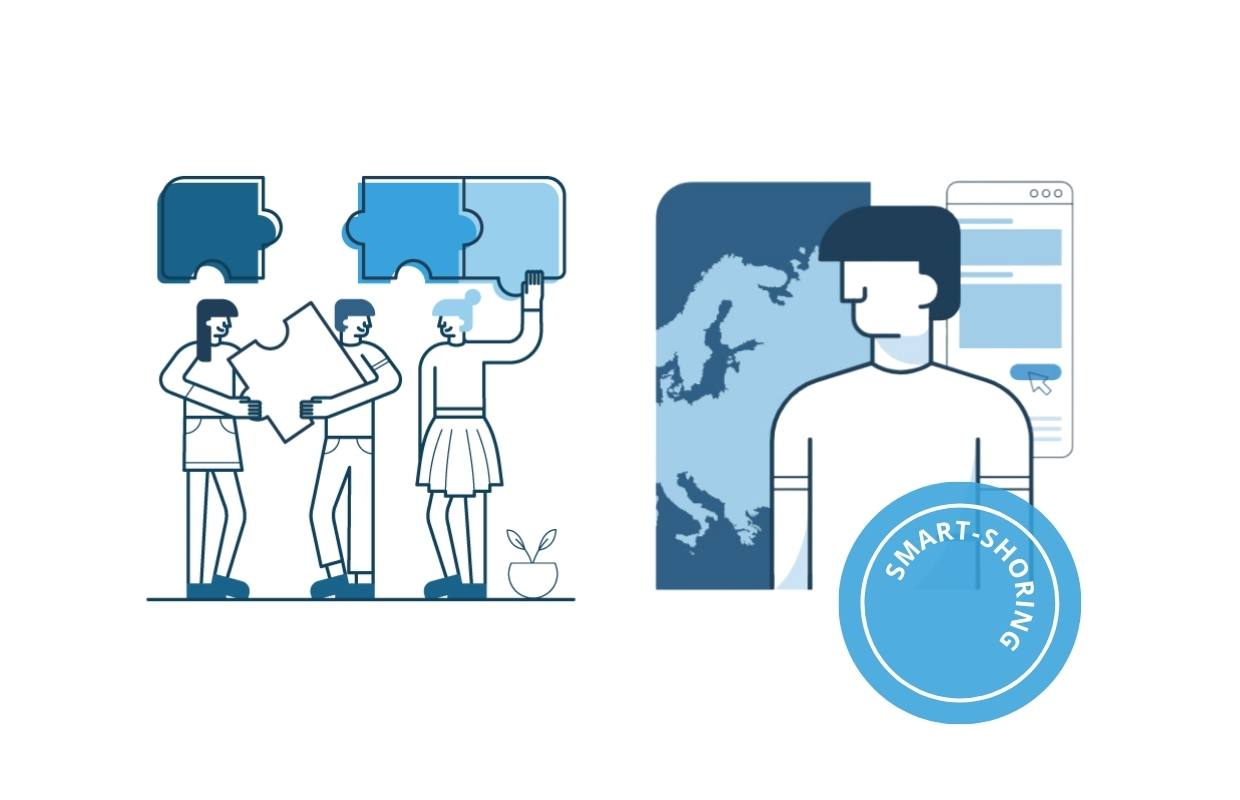Soft skills are one of the key components to building an enjoyable company culture. They are what turns a good technically competent team into an amazing team that is a pleasure to work with. This week we have our Talent Acquisition Manager Sanja Stefanovic, who at the same time manages our Soft Skills Forum, explaining the importance of soft skills in a world of rising AI.
The Importance of Marrying Soft Skills to Hard Skills in a World of Rising AI
(by Sanja Stefanovic)
In a rapidly evolving world where artificial intelligence (AI) is becoming increasingly prevalent, the importance of soft skills cannot be overstated. While hard skills are undoubtedly valuable and provide individuals with the necessary technical expertise, it is the combination of the two that truly empowers individuals to thrive in their personal and professional lives.
What We Mean by Hard Skills
Hard skills, often obtained through education, training, and experience, refer to the specific technical abilities and knowledge required to perform specific tasks or duties. They can be measured, quantified, and typically have a clear benchmark for success. Examples of hard skills include coding, data analysis, accounting, or mechanical engineering. Hard skills enable individuals to execute specialized tasks efficiently and effectively, making them the backbone of various industries.
However, in a world increasingly influenced by AI, where automation and machine learning can handle routine or technical tasks with greater speed and accuracy, the value of soft skills has risen significantly.
What We Mean by Soft Skills
Soft skills are the personal attributes, social abilities, and emotional intelligence that allow individuals to effectively communicate, collaborate, and adapt to different situations. These skills are more nuanced and challenging to quantify but are critical for success in an AI-driven world.
Soft skills encompass a broad range of competencies, including communication, problem-solving, teamwork, adaptability, creativity, leadership, and empathy. These skills enable individuals to navigate complex and unpredictable scenarios, interact with diverse stakeholders, and add a human touch to otherwise automated processes. While AI excels at data analysis and optimization, it often struggles with human-centric tasks, such as understanding emotions, managing relationships, and making subjective judgments. This is precisely where soft skills shine and provide a distinct advantage.
Marrying the Two
By combining hard skills and soft skills, individuals can unlock their full potential. Technical expertise alone may result in efficiency and accuracy, but without effective communication, teamwork, or problem-solving abilities, the impact may remain limited. Conversely, possessing excellent soft skills without the technical know-how may hinder one’s ability to contribute effectively or adapt to technological advancements.
Moreover, the collaboration between the two types of skills is mutually reinforcing. Soft skills enhance the application and utilization of hard skills. For instance, strong communication skills enable individuals to explain complex technical concepts to non-technical stakeholders, fostering understanding and buy-in. Similarly, adaptability allows professionals to embrace new technologies and adapt their hard skills to evolving circumstances, staying relevant in an AI-driven world.
Furthermore, the rising prominence of AI presents new opportunities for individuals with a balance of soft and hard skills. While AI can automate routine tasks, it also creates a demand for individuals who can design, implement, and manage AI systems. These roles require not only technical proficiency but also the ability to understand and address the ethical, societal, and human implications of AI technology. Soft skills like critical thinking, ethical decision-making, and the ability to navigate ethical dilemmas are indispensable in such contexts.
Conclusion
In a world where AI is on the rise, the importance of soft skills should not be overlooked. While hard skills provide the technical foundation, soft skills are the glue that binds them together, enabling individuals to adapt, communicate, collaborate, and add a human touch to automated processes.
In 2022 we counted 259 hours that Polar Cape employees invested in our Soft Skills Forum. To us, investing in these hours means that we get to create powerful synergy between the two, unlocking new possibilities and ensuring individuals can thrive in an AI-driven landscape.













